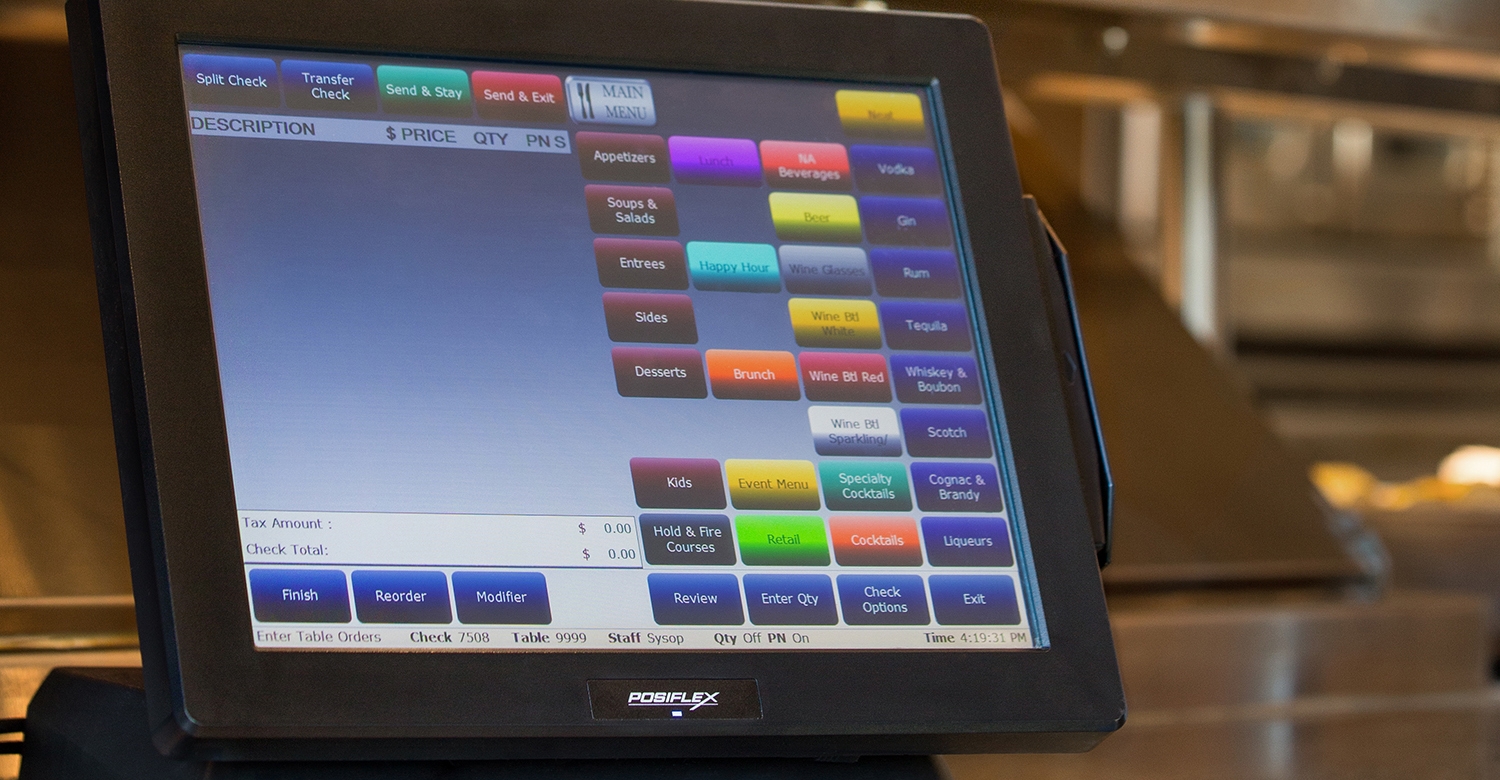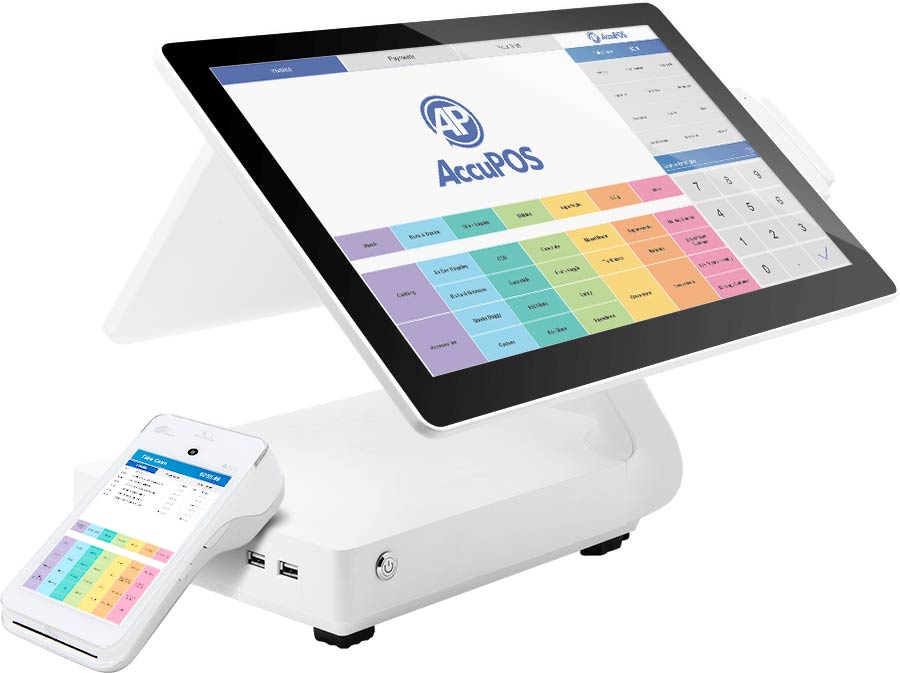The smart Trick of Pos Systems That Nobody is Talking About
The smart Trick of Pos Systems That Nobody is Talking About
Blog Article
Examine This Report about Pos Machine

Restaurant POS: Retail Point-Of-Sale Solutions Streamline Transactions
Facts About Restaurant Pos Uncovered

Hardware Components of a Point of Sale System What makes a POS system tick? It's not just software; the hardware plays a starring function. Believe of it as the body to the software application's brain. Without the best hardware, even the most sophisticated POS software application is just a quite face. Vital POS Hardware So, what are the must-haves? Let's break it down. The central processing system, typically a computer or tablet, is the heart of the operation. The display or touchscreen show allows staff to connect with the system. A barcode scanner accelerate the checkout procedure. Keep in mind the days of manually entering each code? The reliable invoice printer provides clients with a record of their purchase. A cash drawer keeps your cash safe and arranged. A card reader permits consumers to pay with credit or debit cards. Diving Deeper: Beyond the Essential But wait, there's more! Depending on your company, you may require specific hardware. A dining establishment might incorporate kitchen printers to relay orders, while a retail store may utilize label printers for item tagging. Ever question how your local bakeshop immediately prints those delicious-looking labels? Picking the Right Hardware: A Balancing Act Selecting the ideal hardware isn't just about buying the most pricey devices. It has to do with finding the sweet area in between functionality, sturdiness, and budget. A small company simply beginning might choose a more standard setup, while a high-volume seller will need robust, high-performance machines. Is it much better to purchase brand-new or utilized? Consider your alternatives thoroughly. A brand-new system provides the current innovation and warranty defense, however a reconditioned system can conserve you money. The Future of POS Hardware What does the future hold? Expect to see much get more info more integration with mobile gadgets, biometric scanners for employee authentication, and advanced analytics dashboards displayed on bigger, clearer screens. Think of a world where inventory is automatically updated in real-time as products are scanned-- a world where you can track your very popular item from anywhere in the world. The possibilities are unlimited, and the hardware is continually developing to fulfill the demands these days's organizations. Are you ready to update your point of sale system?
Software Application Features and Capabilities: The Heart of Your POS System
Ever view an experienced barista slide through a busy early morning rush? Their secret isn't simply caffeine; it's a seamless dance with their POS system. The software is the conductor of your service symphony, managing whatever from sales to stock. What notes should you be listening for? What capabilities genuinely matter in today's market?
Inventory Management: Beyond Counting Beans
Forget spreadsheets that haunt your dreams. Modern POS systems provide real-time inventory tracking, notifying you when your stock of artisanal coffee beans dips precariously low. Think of it as a digital guardian angel, preventing those uncomfortable "Sorry, we're out!" minutes to customers. What if you could likewise anticipate need based upon historic information? Numerous systems now offer forecasting tools, a powerful weapon against overstocking and lost sales. This assists avoid the predicament of running out of popular items or accumulating excess inventory of slow-moving items, both of which can constrain capital and space.
Sales Reporting and Analytics: Deciphering the Information
Sales information is the brand-new gold, and your POS system is the miner. Forget simply understanding just how much you sold today. Dive deep into the data to reveal patterns, identify your best-selling items, and understand customer behavior. Which menu item pairs completely with the day-to-day special? Which promotion resonated most with your clientele? These insights are not simply interesting; they're actionable intelligence. Without dependable sales reporting, navigating the intricacies of service decision-making ends up being like cruising without a compass, increasing the possibility of missteps and missed out on chances.
Customer Relationship Management (CRM): Building Bridges, Not Walls
Remembering a routine client's name and favorite order is lovely, however scaling that individual touch is challenging. POS systems with CRM capabilities enable you to track client purchase history, choices, and even birthdays. Picture instantly using a discount rate on their birthday-- a small gesture that fosters loyalty and encourages repeat business. But there is the potential snag of poor data quality, which can result in unreliable customer profiles and inefficient marketing efforts.
Payment Processing: Enhancing the Transaction
The checkout experience can make or break a sale. Seamless integration with different payment approaches-- charge card, mobile wallets, even copyright-- is non-negotiable. Can your system handle split payments? Does it offer safe tokenization to secure customer information? A clunky payment procedure resembles striking a sour note in your service symphony, possibly interrupting the entire performance. Guaranteeing compatibility with progressing payment innovations and adherence to security requirements are critical for maintaining consumer trust and functional performance.
Employee Management: Keeping the Group in Sync
From clocking in and out to handling authorizations and tracking performance, employee management features streamline operations and enhance accountability. Is scheduling a headache? Many POS systems use incorporated scheduling tools, optimizing staffing levels based upon predicted need. A typical challenge that is frequently neglected is the challenge of incorporating staff member management functionalities with payroll systems, which can result in mistakes and ineffectiveness in wage computations.
Advanced Features: Leveling Up Your Operations
- Table Management: Perfect for restaurants, this function permits you to visualize your dining space, track table status, and manage appointments.
- Commitment Programs: Reward your finest clients and encourage repeat organization with incorporated loyalty programs.
- Online Buying Integration: Perfectly incorporate your POS system with online purchasing platforms to expand your reach.
Picking the ideal POS system is about more than just performance; it's about discovering a partner that can grow with your business. Consider your current requirements, anticipate future growth, and don't be afraid to ask the hard concerns. The right software application can change your business from a disorderly cacophony into a harmonious work of art.
Industry-Specific POS System Applications
Believe of the regional bakery, dynamic with morning clients craving fresh croissants. A generic POS system might deal with deals, but can it handle complex recipes, track ingredient stock, or automatically change production schedules based on sales information? Probably not. That is where the beauty of industry-specific POS systems shines.
Dining establishments and Hospitality
For dynamic dining establishments, speed and accuracy are critical. The number of times have you seen servers managing orders, modifications, and splitting expenses, all while trying to provide outstanding service? A dining establishment POS system enhances these processes, enabling table management, kitchen area order tickets, and even online purchasing combination. These systems frequently consist of functions like ingredient-level inventory tracking, crucial for managing food expenses and decreasing waste. Ever wonder why your favorite meal is sometimes not available? It may originate from an absence of correct inventory management.
- Table Management
- Kitchen Area Order Tickets
- Online Purchasing Combination
- Ingredient-Level Inventory Tracking
Retail Solutions
Retail, with its diverse inventory and customer interactions, demands a various set of tools. Imagine a shop clothes store struggling to keep an eye on sizes, colors, and seasonal collections using a basic checkout system. An industry-specific retail POS system offers features like barcode scanning, customer loyalty programs, and detailed sales reporting. These systems can even integrate with e-commerce platforms, offering a smooth omnichannel experience for customers. Did you understand some retail POS systems can predict future sales patterns based on historic information? Now that is effective!
The Dangers of a Mismatch
Choosing the incorrect POS system can produce substantial functional obstacles. A clothes shop utilizing a restaurant POS, for example, would find it unsuitable for managing inventory with sizes and colors. The lack of appropriate reporting and analytics might cause misinformed getting decisions and lost revenue. The outcome could be comparable to attempting to fit a square peg in a round hole.
Secret Considerations
Picking an industry-specific POS system requires careful examination. Consider your business's special requirements and functional workflows. Does the system incorporate with existing software application? Does it use the needed reporting abilities? Is it scalable to accommodate future development? A well-chosen POS system is not just a transaction tool; it's a tactical property that can drive efficiency, enhance client satisfaction, and ultimately, improve your bottom line. Keep in mind, it is a financial investment in your service's future, not just an expense.
Security Considerations for Point of Sale Systems
Ever heard the tale of the mom-and-pop store that lost whatever since of a single, neglected security flaw in their POS system!.?. !? It's a cautionary tale, and it highlights a crucial element frequently eclipsed by the allure of elegant functions and structured operations. The reality is, a POS system is only as good as its security. What great is a system that crunches numbers in a flash if it allows bad guys to swipe consumer's information simply as quickly?
The Vulnerability Minefield
The digital landscape is a battleground. Every POS system, no matter size or sophistication, is a prospective target. Are you genuinely prepared for the risks lurking around the corner? The genuine pinch comes when you find that your out-of-date software application has an open hole that hackers can make use of, turning your service into an unwitting accomplice in identity theft. The difficulty is that hackers are crafty and are always altering their methods.
Common Security Gaps and Specialist Tips
- Weak Passwords: "Password123" isn't sufficing. Use strong, unique passwords for all POS system accounts and alter them routinely. Two-factor authentication is a must.
- Unsecured Networks: Your Wi-Fi resembles leaving the front door open. Protect your network with strong file encryption (WPA3 if possible) and think about a separate network for your POS system.
- Out-of-date Software Application: Software application suppliers spot security holes all the time. Stopping working to upgrade is like welcoming difficulty. Establish automatic updates or schedule regular maintenance.
- Worker Training: Your personnel is your first line of defense. Train them to recognize phishing attempts, safeguard passwords, and report suspicious activity.
Data Encryption: Your Guard Versus the Dark Arts
Think of information file encryption as a secret code. It scrambles delicate info, like credit card numbers, making it unreadable to unauthorized users. Without file encryption, your customers' monetary details resemble sitting ducks, ripe for the picking by cybercriminals. It's not simply about securing your clients; it's about safeguarding your credibility and avoiding large fines.
PCI Compliance: The Rulebook You Can't Disregard
If you accept charge card, you're bound by the Payment Card Market Data Security Standard (PCI DSS) It's a set of security standards created to secure cardholder information. Stopping working to comply can result in fines, penalties, and even the loss of your ability to process credit card payments. It's a headache, yes, but it's an essential one. Think about PCI compliance as the expense of doing service in the digital age.
Consider this: every deal processed through your point of sale is a potential entry point for malicious stars. By implementing robust security procedures, you're not just safeguarding your service; you're protecting your consumers' trust and guaranteeing the long-term viability of your operations. The security of your POS system isn't just a technical problem; it's a company crucial. It needs consistent vigilance, proactive procedures, and a commitment to staying ahead of the curve.